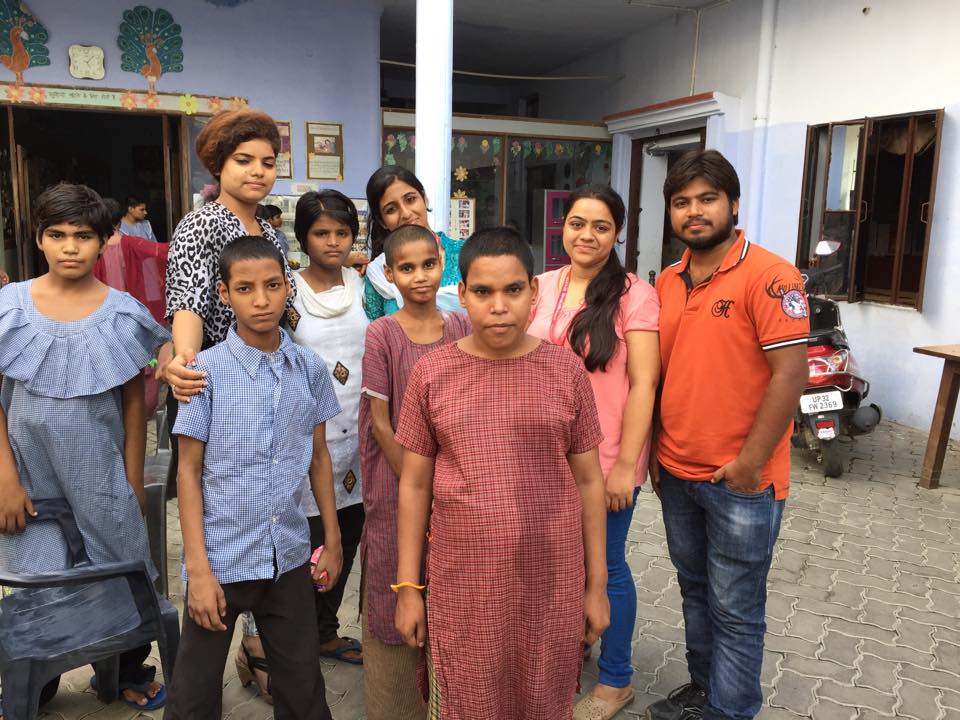
Drishti Samajik Sansthan has adopted hundreds of mentally challenged, disabled children who had been abandoned by their parents since neonatal stage. The NGO made them self-reliant and helped them gain human dignity. A report by Mudit Mathur
Drishti Samajik Sansthan made life meaningful for hundreds of mentally challenged, disabled children who were left abandoned by their parents. Drishti adopted them from the neonatal stage, made them self-reliant and helped them gain human dignity. The NGO’s philanthropic human gesture has been recognised globally and has been awarded many a time for its unique effort in bringing out hidden capabilities of these multiple challenged, specially-abled children to become self-supporting.
Drishti is home to 250 special children, mostly girls and even infants with congenital conditions like hydrocephalus, deafness and mental retardation. Some of them are also survivors of abuse and exploitations of various kinds. Many of these children are hyperactive and their energy needs to be channelized. The training begins with activities of daily living (ADL) and goes on to add elements like occupational and speech therapy, social interaction and finally skill-building. Skill building comes as a solution to both. The artwork, Rakhis by the children is put up for sale in exhibitions while the range of fabric woven by them is always in demand.
This compassionate vision was conceptualised by founder of the Drishti, Neeta Bahadur, who was deeply moved after she visited some rural areas of Lucknow where she had gone to cover a story as Reporter working for the Pioneer newspaper. “She saw specially-abled children abandoned by their own families. This incident hurt her sensitivity her conscience and inspired thousands of thoughtful ideas in her mind, and thus, Drishti was born in 1990,” narrated Dhiresh Bahadur, who is a serving officer of State Bank of India and has sacrificed job promotions in order to carry on these charitable activities as his lifelong mission after the tragic death of his wife Neeta in 2014.
Drishti initially prepared 400 Braille books covering the UP-Board syllabus from 9th to 12th class for blind children with the help of a manual braille. Then, it recorded over 400 audio cassettes covering the same syllabus and helped the blind students of that school to get 100% result in UP Board exams, of both 10th and 12th, with some children even receiving a distinction. The journey to uplift such kids just did not stop there. It further enlarged its activities with the help of socially responsible like-minded people.
“There was hardly any school for special children when Drishti was started in a rented house in the Aliganj area of Lucknow. Now, it has its own home housing about 250 children with a range of disabilities. Neeta’s focus was always on the behavioural pattern of these specially-abled children. Usually, children belonging to severe and profound intellectual disability categories are abandoned by their families because they find it difficult to raise a child like that. But Neeta didn’t give up, rather she developed customized lesson plans based on every child’s needs,” recalls Dhiresh.
“In villages, people are skeptical about sending their children to school, especially when they are disabled. Neeta wanted to change that social perception. She used to go to villages in person and convince their parents so that no child remained deprived of education,” said Atharva Bahadur who has taken up the charge of Drishti as its Director. His wife, Shalu, is actively involved in all kinds of activities that Neeta used to perform affectionately for these special kids.
Drishti has many inspiring stories rehabilitating many specially-abled kids bringing them up from the ocean of despair to a meaningful life. Maqbool, 15, has overcome cerebral palsy and has mastered the skill of extracting cold pressed mustard oil. He was abandoned by his parents when he was just six-year old. Neeta and Dhires had opted for him as his social parents when he was suffering from depression and was prone to violent aggression. Now, he works for the recently launched spice workshop of Drishti and gets remuneration. Started a month ago, the unit has the capacity of churning out at least 500 litres of oil and over 80-90 kilograms of spices per day.













